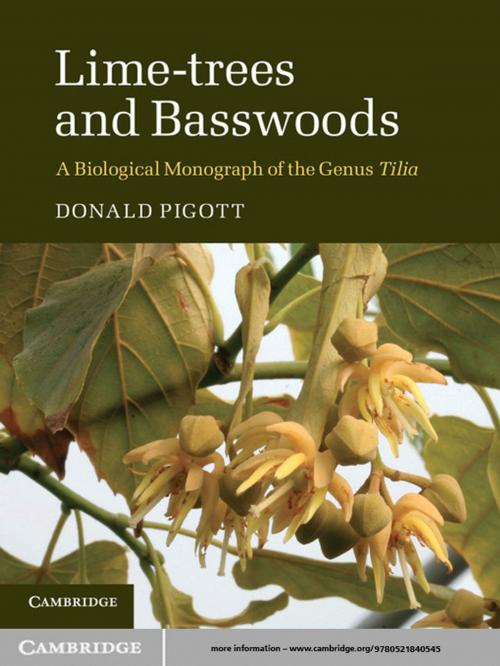Lime-trees and Basswoods
A Biological Monograph of the Genus Tilia
Nonfiction, Science & Nature, Science, Biological Sciences, Botany| Author: | Donald Pigott | ISBN: | 9781139563956 |
| Publisher: | Cambridge University Press | Publication: | September 6, 2012 |
| Imprint: | Cambridge University Press | Language: | English |
| Author: | Donald Pigott |
| ISBN: | 9781139563956 |
| Publisher: | Cambridge University Press |
| Publication: | September 6, 2012 |
| Imprint: | Cambridge University Press |
| Language: | English |
Lime trees (Tilia spp.) are widely distributed and locally important members of northern temperate broad-leaved forests. In marked contrast to the largely uniform morphology of the genus its taxonomic treatment has become increasingly confused and controversial, with over one hundred species and numerous subspecies described. Using extensive data from field studies of natural populations around the world, this book clarifies the situation, proposing a revised taxonomy of 23 species and 14 subspecies. Detailed descriptions are provided for all recognised taxa and are accompanied by illustrations. Data from herbaria and cultivated trees are used to extend the analyses where appropriate and type specimens are included to stabilise nomenclature. Lime tree ecology is also considered, with an exploration of experimental and analytical data on regeneration, growth and reproduction in relation to climate and soils. Additional material includes a glossary of botanical terms and appendices of herbarium codes and relevant physical concepts.
Lime trees (Tilia spp.) are widely distributed and locally important members of northern temperate broad-leaved forests. In marked contrast to the largely uniform morphology of the genus its taxonomic treatment has become increasingly confused and controversial, with over one hundred species and numerous subspecies described. Using extensive data from field studies of natural populations around the world, this book clarifies the situation, proposing a revised taxonomy of 23 species and 14 subspecies. Detailed descriptions are provided for all recognised taxa and are accompanied by illustrations. Data from herbaria and cultivated trees are used to extend the analyses where appropriate and type specimens are included to stabilise nomenclature. Lime tree ecology is also considered, with an exploration of experimental and analytical data on regeneration, growth and reproduction in relation to climate and soils. Additional material includes a glossary of botanical terms and appendices of herbarium codes and relevant physical concepts.















